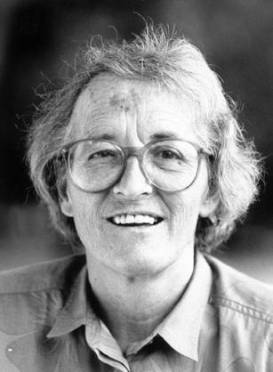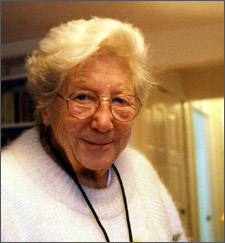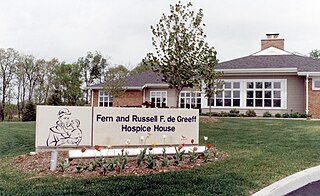Related Research Articles
Palliative care is an interdisciplinary medical caregiving approach aimed at optimizing quality of life and mitigating suffering among people with serious, complex, and often terminal illnesses. Within the published literature, many definitions of palliative care exist. The World Health Organization (WHO) describes palliative care as "an approach that improves the quality of life of patients and their families facing the problems associated with life-threatening illness, through the prevention and relief of suffering by means of early identification and impeccable assessment and treatment of pain, illnesses including other problems whether physical, psychosocial, and spiritual". In the past, palliative care was a disease specific approach, but today the WHO takes a broader patient-centered approach that suggests that the principles of palliative care should be applied as early as possible to any chronic and ultimately fatal illness. This shift was important because if a disease-oriented approach is followed, the needs and preferences of the patient are not fully met and aspects of care, such as pain, quality of life, and social support, as well as spiritual and emotional needs, fail to be addressed. Rather, a patient-centered model prioritizes relief of suffering and tailors care to increase the quality of life for terminally ill patients.

Thanatology is the scientific study of death and the losses brought about as a result. It investigates the mechanisms and forensic aspects of death, such as bodily changes that accompany death and the postmortem period, as well as wider psychological and social aspects related to death. It is primarily an interdisciplinary study offered as a course of study at numerous colleges and universities.

Elisabeth Kübler-Ross was a Swiss-American psychiatrist, a pioneer in near-death studies, and author of the internationally best-selling book, On Death and Dying (1969), where she first discussed her theory of the five stages of grief, also known as the "Kübler-Ross model".

Dame Cicely Mary Strode Saunders was an English nurse, social worker, physician and writer. She is noted for her work in terminal care research and her role in the birth of the hospice movement, emphasising the importance of palliative care in modern medicine, and opposing the legalisation of voluntary euthanasia.

The Columbia University School of Social Work is the graduate school of social work of Columbia University in New York City. It is one of the oldest social work programs in the US, with roots extending back to 1898. It began awarding a Master of Science degree in 1940. As of 2018, it was one of the largest social work schools in the United States, with an enrollment of over 1,000 students.
The New York University Silver School of Social Work provides social work education from undergraduate through doctoral levels.

Ira Robert Byock is an American physician, author, and advocate for palliative care. He is founder and chief medical officer of the Providence St. Joseph Health Institute for Human Caring in Torrance, California, and holds appointments as active emeritus professor of medicine and professor of community health and family medicine at the Geisel School of Medicine at Dartmouth College. He was director of palliative medicine at Dartmouth–Hitchcock Medical Center, from 2003–14, and associate director for patient and family-centered care at the affiliated Norris-Cotton Cancer Center.

Florence Wald was an American nurse, former Dean of Yale School of Nursing, and largely credited as "the mother of the American hospice movement". She led the founding of Connecticut Hospice, the first hospice program in the United States. Late in life, Wald became interested in the provision of hospice care within prisons. In 1998, Wald was inducted into the National Women's Hall of Fame.

In the United States, hospice care is a type and philosophy of end-of-life care which focuses on the palliation of a terminally ill patient's symptoms. These symptoms can be physical, emotional, spiritual, or social in nature. The concept of hospice as a place to treat the incurably ill has been evolving since the 11th century. Hospice care was introduced to the United States in the 1970s in response to the work of Cicely Saunders in the United Kingdom. This part of health care has expanded as people face a variety of issues with terminal illness. In the United States, it is distinguished by extensive use of volunteers and a greater emphasis on the patient's psychological needs in coming to terms with dying.

Hospice care is a type of health care that focuses on the palliation of a terminally ill patient's pain and symptoms and attending to their emotional and spiritual needs at the end of life. Hospice care prioritizes comfort and quality of life by reducing pain and suffering. Hospice care provides an alternative to therapies focused on life-prolonging measures that may be arduous, likely to cause more symptoms, or are not aligned with a person's goals.
Diane E. Meier, an American geriatrician and palliative care specialist. In 1999, Dr. Meier founded the Center to Advance Palliative Care, a national organization devoted to increasing access to quality health care in the United States for people living with serious illness. She continues to serve as CAPC's Director Emerita and Strategic Medical Advisor. Meier is also Vice-Chair for Public Policy, Professor of Geriatrics and Palliative Medicine and Catherine Gaisman Professor of Medical Ethics at the Icahn School of Medicine at Mount Sinai Hospital in New York City. Meier was founder and Director of the Hertzberg Palliative Care Institute at the Icahn School of Medicine in New York City from 1997 to 2011.
In 2006, hospice and palliative medicine was officially recognized by the American Board of Medical Specialties, and is co-sponsored by the American Boards of

Nancy Lee Caroline was an American physician and writer who worked in emergency medical services (EMS). She was medical director of Freedom House, an emergency ambulance service that assisted underserved populations in Pittsburgh in the 1960s and 1970s. She was also the first medical director of Magen David Adom, Israel's Red Cross Society, and was later called "Israel's Mother Teresa" by colleagues.
Lucy Finch is a palliative nurse who has worked in several African countries and founded a hospice in Malawi – Ndi Moyo – "the place giving life".
Margaret Ruth McCorkle FAAN, FAPOS was an American nurse, oncology researcher, and educator. She was the Florence Schorske Wald Professor of Nursing at the Yale School of Nursing.
Mary Jean Baines, OBE néeSilver was a British palliative care physician. Alongside her colleague Dame Cicely Saunders, she has been called one of the founders of the palliative care movement. She worked at St Christopher's Hospice in London from 1968 to 1997, and from there she established the United Kingdom's first community-based end-of-life care service.

Doris Howell was an American physician who specialized in pediatric oncology. She became known as the "mother of hospice," for her pioneering work in palliative care.
Sister Maureen Keleher was an American hospital administrator, hospice advocate, and Catholic nun. She served as chief executive officer of St. Francis Medical Center in Honolulu, Hawaii, and led the organization from 1953 to 1988. An early advocate of the hospice movement in Hawaii, Sister Keleher established St. Francis Hospice, the first hospice in the state, in 1978. In 1988, St. Francis opened the first freestanding hospice facility in the state, the Sister Maureen Keleher Center, which was named after her. She also served as regional administrator of the St. Francis Order of Nuns.
Karen Bullock is an American medical sociologist, clinical social worker, and an academic research scholar. She is the Ahearn Endowed Professor at the Boston College School of Social Work.
Thelma Dorothy Bates was a British oncologist who established the first palliative care service at a British hospital.
References
- ↑ Davidson, Kay & Bullock, Karen (2007). "Zelda Foster and Her Contributions to Social Work in End-of-Life Care". Journal of Social Work in End-of-Life & Palliative Care. 3, 2007 - Issue 1 (1): 69–82. doi:10.1300/J457v03n01_11. PMID 18072663. S2CID 20473710.
{{cite journal}}: CS1 maint: multiple names: authors list (link) - 1 2 3 4 Hevesi, Dennis (July 13, 2006). "Zelda Foster, 71, Pioneer in Hospice Care, Dies". The New York Times. Retrieved 19 March 2023.
- 1 2 "CSSW HALL OF FAME and PIONEER INDUCTEES" (PDF). Columbia University School of Social Work. Retrieved 20 March 2023.
- ↑ Warner, Gregory (July 5, 2006). "Hospice Advocate Zelda Foster Has Died". All Things Considered. Retrieved 20 March 2023.
- ↑ "Zelda Foster Studies". New York University. Retrieved 20 March 2023.